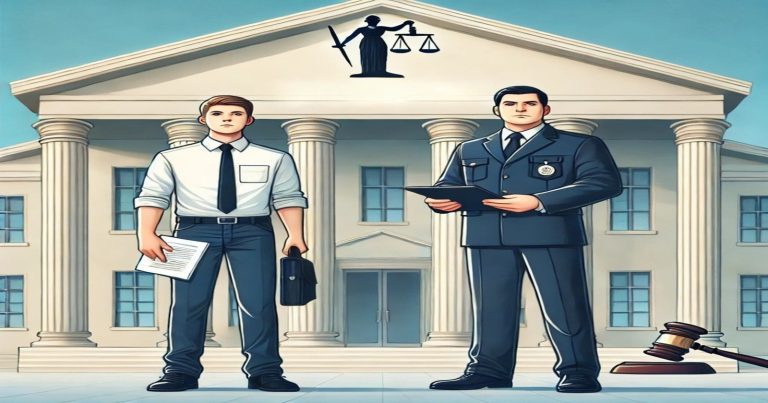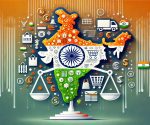The role of government in consumer protection is vital because it ensures that consumers are dealt with fairly, that their rights are protected, and they are away from fraudulent practices. The government creates laws, enforces regulations, and forms institutions to ensure businesses do not exploit consumers. In India, the government has numerous acts, policies, and awareness programs to protect the interests of consumers. In India, the government’s efforts, like the Consumer Protection Act of 2019 and initiatives like Jago Grahak Jago, have empowered millions of consumers to stand up for their rights.
Who is a Consumer?
The one who buys goods or services to consume them rather than selling or for business. In simple words, if you purchase something like a mobile phone, shoes, or internet or even electricity, you are a consumer.
Definition of Consumer (Under the Consumer Protection Act, 2019), A consumer is A person who buys goods for consideration (money), either online or offline. A person who hires or avails services for personal use. Includes anyone using the goods or services with the buyer’s permission. However, it does not include someone who buys goods for resale or commercial purposes. Examples of Consumers are A student buying textbooks to study, A family hiring a cab to travel, and A person recharging mobile service.
What is Consumer Protection?
Consumer protection refers to the efforts and actions to secure consumers’ interests and safeguard their rights against unfair trade practices, fraud, exploitation, and unsafe products. It involves the laws, regulations, and policies that can help protect consumers from a business that engages in unethical practices.
Consumer protection inhibits unfair trade practices through false advertisements, misleading information, and overcharging. The sale of dangerous or defective goods is prohibited. In case an issue occurs, a grievance redressal system exists. This would further provide consumer rights and responsibility awareness with fair competition in the market, quality products, and reasonable prices.
Role of Government in Consumer Protection
The role of the government would be in policy development, establishment, and enforcement. Consumers’ interests are protected, and this is achieved through regulation, policymaking, and education-avoiding consumer exploitation and maximizing the supply of safe, quality goods and services.
Legislation and Regulation
The government introduces acts, for example, Consumer Protection Act 2019, in order to give consumers rights. They make sure no unfair trade practice and false advertisement take place. It gives fair rules to businesses and safe, quality products, and services to consumers.
Laws set forth definitive rules for being fair in commerce. Regulations give companies guidance within ethical boundaries. They make a company accountable and liable if some wrongdoing occurs against the public as well as prevent any threat towards consumers who must not feel harmed or intimidated as they purchase items and services on the market.
Establishing Consumer Courts
The government has implemented a three-tier system for consumer grievances. DCDRC is the first at the local court level, then the State Consumer Disputes Redressal Commission (SCDRC) for the state level, and the National Consumer Disputes Redressal Commission (NCDRC) at the national level. In such cases, the consumer may take recourse to such courts.
These courts remedy consumer problems quickly, including faulty products and inadequate services. They make companies accountable for the wrong they cause and ensure retribution to the customers when needed. This system thus makes it relatively easy for persons to fight over their rights in the courts.
Consumer Awareness Campaigns
Consumer awareness campaigns such as Jago Grahak Jago educate consumers about their rights. These awareness campaigns help the consumer make intelligent choices, spot unfair practices, and know how to report the same. It uses TV commercials, posters, and social networking sites to spread the message throughout the country.
Schools and colleges also use consumer education to help students know their rights and responsibilities. This makes young people more informed consumers, able to protect themselves from fraudsters and make better buying decisions.
Monitoring and Enforcement
The government regulates businesses so that they comply with safety and service standards. It checks whether the companies are selling safe products and providing quality services. In case the rules are broken, authorities penalize businesses for false advertisement overpricing or low-quality goods.
Strict observation keeps companies in truth and protects consumers from fraudsters. Violations are reported early due to regular inspections and surprise checks. It is a sound system with trust between business people and consumers, offering a fair and safe marketplace.
Quality Control and Standardization
Agencies like Bureau of Indian Standards (BIS), Food Safety and Standards Authority of India (FSSAI), and AGMARK test these products for their safety and quality. They inspect if the product is safe for consumption and up to the government’s demands.
Quality control helps the consumer believe in the products they buy. Be it food, electronics, or agricultural produce, these bodies approve products that pass through intense tests. This ensures public health, increases consumer confidence, and makes companies want better products.
Real-Life Examples of Government’s Role
The ban on Maggi noodles in 2015 over the excess content of lead depicts the government’s stern approach toward protecting the public’s health. It indicated how soon authorities could act regarding safety issues by pulling harmful products out of the market, saving the consumer. This will establish confidence and make the company stick to safety parameters.
Not only that, but penalties to companies for false advertisements, such as fairness cream commercials, which make unrealistic claims, will also keep businesses honest. GST laws also ensure fair pricing of all products and services. There will be no overpricing. This provides a clean market with proper quality products at reasonable prices.
Role of Government in Consumer Protection FAQs
1. What is the role of government towards consumer protection?
The government protects consumer rights through laws and regulations, consumer courts, and various awareness programs against unfair trade practices.
2. What is the role of the Indian government in consumer protection?
The Indian government has developed laws like the Consumer Protection Act 2019, instituted consumer forums, and run the campaign Jago Grahak Jago for awareness in India.
3. What are the primary laws for consumer protection in India?
The critical legal provisions include the Consumer Protection Act, 2019 and FSSAI, BIS, AGMARK regulations, etc.
4. How does the government raise awareness on consumer rights?
The government conducts many awareness campaigns, such as Jago Grahak Jago and promotes consumer education through media, schools, and public programs.
5. What if my consumer rights are violated?
Depending on the claim amount, one can file a complaint at District Consumer Forum, State Commission, or National Commission.


